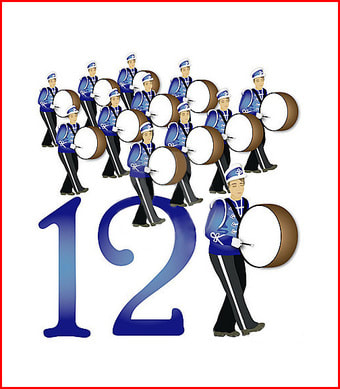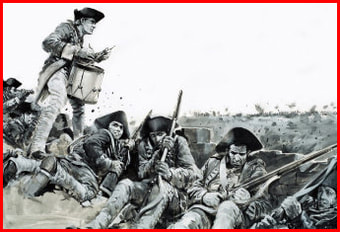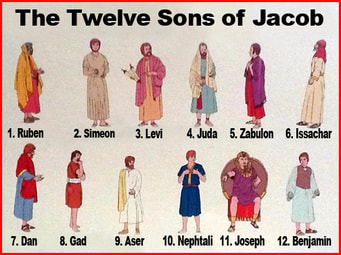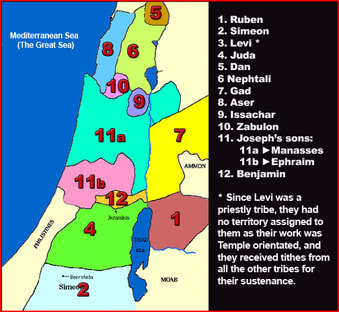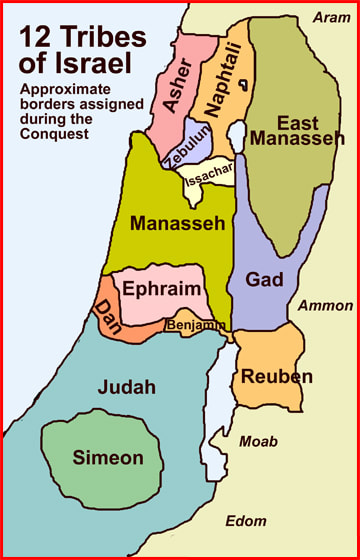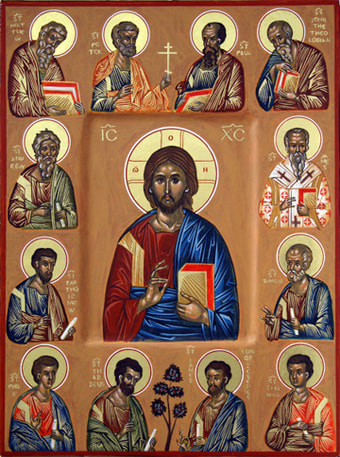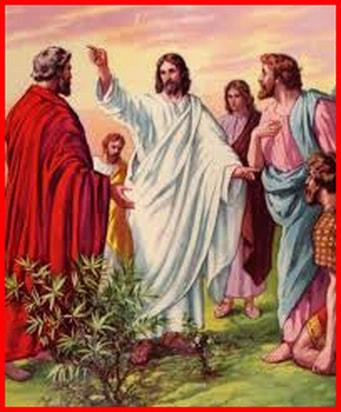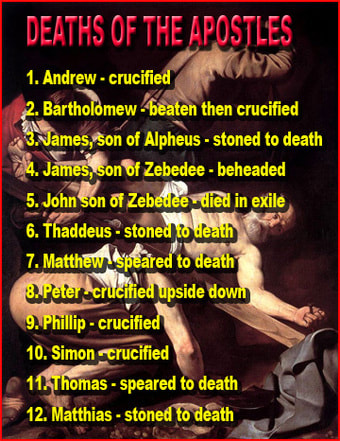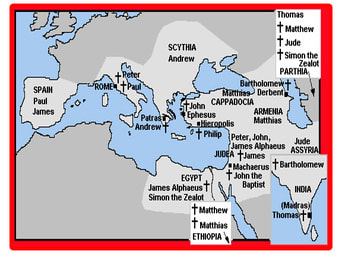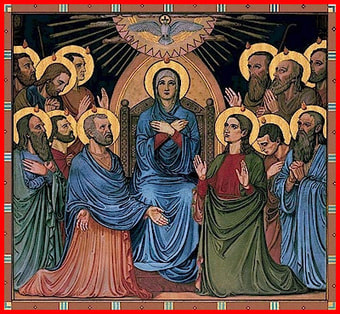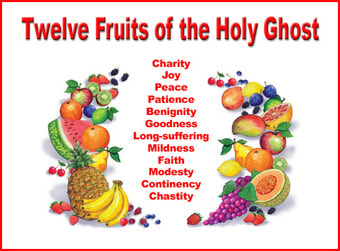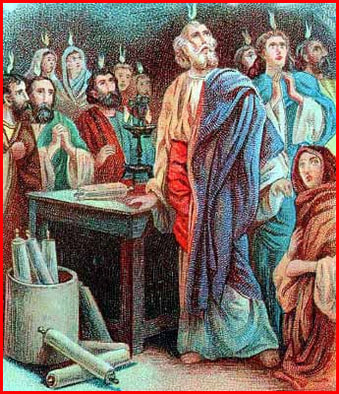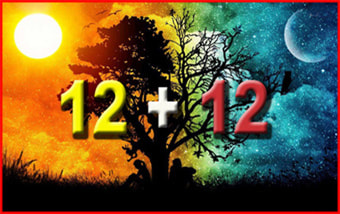| Devotion to Our Lady |
|
- Homepage
-
Daily Thoughts
- 2023 October Daily Thoughts
- Daily Thoughts Lent 2020
- Daily Thoughts for Advent 2019
- Daily Thoughts for October 2019
- Daily Thoughts for September 2019
- Daily Thoughts for August 2019
- Daily Thoughts for July
- Daily Thoughts for June
- Daily Thoughts for Easter 2019
- Daily Thoughts for Lent 2019
- Daily Thoughts for Christmas
- Daily Thoughts Easter 2022
- Sacred Heart
- Holy Ghost
-
Spiritual Life
- Holy Mass Explained
- First Friday Devotions
- First Saturday Devotions
- The Mercy of God
- Vocations
- The Path Everyone Must Walk >
- Gift of Failure
- Halloween or Hell-O-Ween?
- Ignatian Spiritual Exercises >
- Meditation is Soul-Saving
- Spiritual Communion
- Miraculous Medal
- Enrollment in Miraculous Medal
- St. Benedict Medal
- Holy Water
- Advice on Prayer
- Your Daily Mary
-
Prayers
- September Devotions
- Seven Sorrows of Our Lady
-
Novenas
>
- NV-Help of Christians
- NV-Nativity of Our Lady
- NV-Seven Sorrows
- NV- Sorrowful Heart
- NV-Pope St Pius X
- NV-La Salette
- NV-St Michael Archangel
- NV-Immaculate Heart
- NV-Assumption
- NV-Novena for Fathers
- NV-Novena for Your Mother
- NV-St Raphael Archangel
- NV-Souls in Purgatory
- NV-All Saints Day
- NV-Christ the King
- NV-Divine Motherhood
- NV-Guardian Angels
- NV-Rosary
- NV-Mirac Med
- NV- Imm Conc
- NV - Guadalupe
- NV - Nativity of Jesus
- NV-Epiphany
- NV-OL Good Success
- NV-Lourdes
- NV-St Patrick
- NV-St Joseph
- NV-Annunciation
- NV-St Louis de Montfort
- NV-OL Good Counsel
- NV-Last Supper
- NV-Passion
- NV-Pentecost
- NV-Ascension
- NV-Sacred Heart
- NV-Sacred Heart & Perpetual Help
- NV-Corpus Christi
- NV-OL of Perpetual Help
- NV-Queenship BVM
- NV-OL of Mount Carmel
- NV-St Mary Magdalen
- NV- Im Hrt
- August Devotions to IHM
- Immaculate Heart of Mary
- Litany of Dependence
- Prayers to St Mary Magdalen
- Prayers in Times of Sickness Disease & Danger
- Holy Souls in Purgatory
- Meditations on the Litany of Our Lady
- Special Feast Days
- Prayers to Mary (Mon-Sun)
- Litanies to Our Lady >
- Various & Special Needs
- Our Lady of the Rosary
- Our Lady of Mt. Carmel
- Our Lady of Perpetual Help
- Our Lady of Guadalupe
- Other titles of Our Lady
-
Rosary
- Downloads
- Consecration
- Easter Season
-
Holy Week
- Last Seven Words of Jesus >
- Characters of Passion >
- The Last Days of Christ
- Before Palm Sunday
- Palm Sunday
- Monday in Holy Week
- Tuesday in Holy Week
- Wednesday in Holy Week
- Holy Thursday (Last Supper)
- Holy Thursday (Agony & Arrest)
- Night Vigil with Christ
- Good Friday (Pilate & Herod)
- Good Friday (Way of Cross & Crucifixion)
- Saturday in Holy Week
-
Lent
- Ideas for Lent
- Daily Lenten Planner
- Daily Lenten Liturgy
- From Cold to Hot
- Lent with Aquinas
- Lent with Dom Gueranger
- Virtues for Lent
- History of Penance
- How Expensive is Sin?
- Confession of Sins
- Letter to Friends of the Cross
- Sermons for Lent
- Stations of the Cross >
- Lenten Prayers
- 7 Penitential Psalms
- Lenten Psalms SUN
- Lenten Psalms MON
- Lenten Psalms TUE
- Lenten Psalms WED
- Lenten Psalms THU
- Lenten Psalms FRI
- Lenten Psalms SAT
- Lenten Laughs
- Septuagesima
-
Christmas
- Epiphany Explained
- Suggestions for Christmas
- Food For Thought
- Christmas with Aquinas
- Christmas with Dom Gueranger
- Christmas Prayers
- Candles & Candlemas
- Christmas Sermons
- Christmas Prayers SUN
- Christmas Prayers MON
- Christmas Prayers TUE
- Christmas Prayers WED
- Christmas Prayers THU
- Christmas Prayers FRI
- Christmas Prayers SAT
- Twelve Days of Christmas >
-
Advent Journey
- Purgatory
- Christ the King
- Legion of Mary
- Scapular
-
Saints
-
Martyrs for the Faith
>
- Your Daily Martyr >
- All 365 Days of Martyrs
- Cristeros
- St Valentine & Valentine's Day
- Martyrs--Thomas Becket
- Martyrs--John the Apostle
- Holy Machabees
- Age of Martyrdom
- Carmelites of Compiegne
- Martyrs--Peter & Paul
- Martyrs--John the Baptist
- Martyrs--Andrew
- Martyrs--James the Great
- Martyrs--North American
- Martyrs--Seven Holy Sleepers
- Martyrs--Afra
- School of Martyrdom
- Martyrs--Christina
- Desert Saints >
- Saints for Sinners >
- Saints of Mary >
- History of All Saints Day
-
Martyrs for the Faith
>
- Precious Blood
- Synod 2023
-
Catechism
- Catechism Lesson 1
- Catechism Lesson 2
- Catechism Lesson 3
- Catechism Lesson 4
- Catechism Lesson 5
- Catechism Lesson 6
- Catechism Lesson 7
- Catechism Lesson 8
- Catechism Lesson 9
- Catechism Lesson 10
- Catechism Lesson 11
- Catechism Lesson 12
- Catechism Lesson 13
- Catechism Lesson 14
- Catechism Lesson 15
- Catechism Lesson 16
- Catechism Lesson 17
- Catechism Lesson 18
- Catechism Lesson 19
- Catechism Lesson 20
- Catechism Lesson 21
- Catechism Lesson 22
- Bible Study
-
Calendar
- Miracles
- Apparitions
- Shrines
- Prophecies
- Angels Homepage
- Hell
-
Church Crisis
- Conspiracy Theories
- Amazon Synod 2019 >
- Liberalism & Modernism
- Modernism--Encyclical Pascendi
- Modernism & Children
- Modernism--Documents
- The Francis Pages
- Church Enemies on Francis
- Francis Quotes
- Amoris Laetitia Critique
- Danger of Ignorance (Pius X)
- Restore all In Christ (Pius X)
- Catholic Action (Pius X)
- Another TITANIC Disaster?
- The "Errors of Russia"
- CRISIS PRAYERS
- Election Novena 2024
- The Anger Room
- War Zone
- Life of Mary
- Spiritual Gym
- Stupidity
- Coronavirus and Catholicism
- History & Facts
- Books
- Catholic Family
- Children
- Daily Quiz
-
Novena Church & Pope
- Day 01 Church-Pope Novena
- Day 02 Church-Pope Novena
- Day 03 Church-Pope Novena
- Day 04 Church-Pope Novena
- Day 05 Church-Pope Novena
- Day 06 Church-Pope Novena
- Day 07 Church-Pope Novena
- Day 08 Church-Pope Novena
- Day 09 Church-Pope Novena
- Day 10 Church-Pope Novena
- Day 11 Church-Pope Novena
- Day 12 Church-Pope Novena
- Day 13 Church-Pope Novena
- Day 14 Church-Pope Novena
- Day 15 Church-Pope Novena
- Day 16 Church-Pope Novena
- Day 17 Church-Pope Novena
- Day 18 Church-Pope Novena
- Day 19 Church-Pope Novena
- Day 20 Church-Pope Novena
- Day 21 Church-Pope Novena
- Day 22 Church-Pope Novena
- Day 23 Church-Pope Novena
- Day 24 Church-Pope Novena
- Day 25 Church-Pope Novena
- Day 26 Church-Pope Novena
- Day 27 Church-Pope Novena
- Day 28 Church-Pope Novena
- Day 29 Church-Pope Novena
- Day 30 Church-Pope Novena
- Day 31 Church-Pope Novena
- Day 32 Church-Pope Novena
- Day 33 Church-Pope Novena
- Day 34 Church-Pope Novena
- Day 35 Church-Pope Novena
- Day 36 Church-Pope Novena
- Day 37 Church-Pope Novena
- Day 38 Church-Pope Novena
- Day 39 Church-Pope Novena
- Day 40 Church-Pope Novena
- Day 41 Church-Pope Novena
- Day 42 Church-Pope Novena
- Day 43 Church-Pope Novena
- Day 44 Church-Pope Novena
- Day 45 Church-Pope Novena
- Day 46 Church-Pope Novena
- Day 47 Church-Pope Novena
- Day 48 Church-Pope Novena
- Day 49 Church-Pope Novena
- Day 50 Church-Pope Novena
- Day 51 Church-Pope Novena
- Day 52 Church-Pope Novena
- Day 53 Church-Pope Novena
- Day 54 Church-Pope Novena
- Penance Novena
- Daily WeAtheR Forecast
CLICK ON ANY CHRISTMAS LINK BELOW
(most links are available now, the other links will activated shortly)
TWELVE DAYS OF CHRISTMAS
| 12 Day Homepage | 1st Day of Christmas | 2nd Day of Christmas | 3rd Day of Christmas |
| 4th Day of Christmas | 5th Day of Christmas | 6th Day of Christmas | 7th Day of Christmas
| 8th Day of Christmas | 9th Day of Christmas | 10th Day of Christmas | 11th Day of Christmas | 12th Day of Christmas |
PRAYING THE PSALMS THROUGH CHRISTMAS
| Sundays | Mondays | Tuesdays | Wednesdays | Thursdays | Fridays | Saturdays |
SPIRITUAL READING THROUGH CHRISTMAS
| St. Thomas Aquinas on Christmas | Dom Gueranger on Christmas |
(most links are available now, the other links will activated shortly)
TWELVE DAYS OF CHRISTMAS
| 12 Day Homepage | 1st Day of Christmas | 2nd Day of Christmas | 3rd Day of Christmas |
| 4th Day of Christmas | 5th Day of Christmas | 6th Day of Christmas | 7th Day of Christmas
| 8th Day of Christmas | 9th Day of Christmas | 10th Day of Christmas | 11th Day of Christmas | 12th Day of Christmas |
PRAYING THE PSALMS THROUGH CHRISTMAS
| Sundays | Mondays | Tuesdays | Wednesdays | Thursdays | Fridays | Saturdays |
SPIRITUAL READING THROUGH CHRISTMAS
| St. Thomas Aquinas on Christmas | Dom Gueranger on Christmas |
THE CONTROVERSY OVER THE SONG "THE TWELVE DAYS OF CHRISTMAS"
In the last 20 or so years, there has been quite a bit of controversy over the song The Twelve Days of Christmas. Some say it was a cryptic catechism song, used by the persecuted Catholics of England as a means to teach their children some rudimentary teachings of the Faith under the disguise of a seemingly harmless song. Others contest this, by saying that there is no evidence to back-up this claim and say that the alleged points of doctrine to be found hidden in the song, are ... (click here to read more)
"...Twelve Drummers Drumming"
|
THE NUMBER TWELVE
The number TWELVE reminds of many spiritual things, here are a few: The TWELVE sons of Jacob The TWELVE tribes of Israel The TWELVE Apostles The TWELVE months of the year The TWELVE hours of each day and night The TWELVE inches in a foot The TWELVE units in a dozen TWELVE, A NUMBER OF PERFECTION Twelve is the number of governmental perfection. There were 12 tribes of Israel; 12 Apostles, 12 foundations in the heavenly Jerusalem; 12 gates; 12 pearls; 12 angels. The measurements of New Jerusalem are 12,000 furlongs or stadia, while the wall will be 144 (12 x 12) cubits THE SYMBOLISM OF DRUMMING Drums first appeared as far back as 6000 B.C. Mesopotamian excavations unearthed small cylindrical drums dated 3000 B.C. The drum was born out bloodshed and carnage not out of peaceful pursuits as most would think. In both tribal and national situations in the time of war the drum was used to either celebrate a victory or to actually guide the direction of the battle. In the situation of tribal warfare the drum was used more to prepare the warriors for the battle ahead. The warriors who would be fighting would be primed so they were ready for battle. Also when victory was gained the winners would celebrate with drums only or with other instruments. This celebration would be joyous and would include dancing to the beat of the drum. The drummers would play certain beats with the music to heighten the euphoria of winning the battle. This would make the victory all the more glorious and satisfying to the winning tribe. In the case of nation against nation in both Europe and America the drummers had to perform quite a different function. Civil war drums had a different function from tribal drums in that they were used to direct the battle. In the past there was not the sophisticated communication equipment that is used in battle today. It was difficult to guide the troops, so a drum was used that the drummer played to relay movements and battle orders. Battle drums were extremely important in how the battle would go via the orders given and executed by the men in the battle carrying them out. All the troops were taught the various drum beats played by the battle drummer and what they meant so they could execute the orders given. These drums of war had to cut through the noise of battle so that the troops could hear what they were to do next. The battle drummer played his drum with a pair of drum stick to create the volume needed to cut through the noise. If the battle was extremely noisy then several drummers would play at once so the message would be heard by the men. The “drummers drumming“ also speak of rule or governance. For the drum beat governs the pace of the marching soldiers. We say that they “march to beat of the drum.” The Apostles’ Creed is the beat of the drum of the Faith, and we march obediently to its beat. Similarly, the original 'drummers' of the Church, the Twelve Apostles, would preach, teach and 'drum' into the minds of the first Christians the basic doctrines of Christ and tactics to be used in the spiritual warfare against the devil, the world and the flesh. THE TWELVE SONS OF JACOB The twelve sons of Jacob would lay the foundation for the Twelve Tribes of Israel. The mothers of Jacob’s sons are: Lia: Ruben, Simeon, Levi, Juda, Issachar, Zabulon Rachel: Joseph, Benjamin Bala (Rachel’s maid): Dan, Nephtali Zelpah (Lia’s maid): Gad, Aser THE TWELVE TRIBES OF ISRAEL The Bible traces the Israelites to the patriarch Jacob, grandson of Abraham, who was renamed Israel after a mysterious incident in which he wrestles all night with an angel of God. Jacob’s twelve sons (in order of birth), Ruben, Simeon, Levi, Juda, Dan, Nephtali, Gad, Aser, Issachar, Zabulon, Joseph and Benjamin, become the ancestors of twelve tribes, with the exception of Joseph, whose two sons Mannasses and Ephraim become tribal eponyms. Jacob and his sons are forced by famine to go down into Egypt. When they arrive they and their families are 70 in number, but within four generations they have increased to 600,000 men of fighting age, and the Pharaoh of Egypt, alarmed, first enslaves them and then orders the death of all male Hebrew children. The God of Israel reveals His name to Moses, a Hebrew of the line of Levi; Moses leads the Israelites out of bondage and into the desert, where God gives them their laws and the Israelites agree to become His people. Nevertheless, the Israelites lack complete faith in God, and the generation which left Egypt is not permitted to enter the Promised Land. Once they have conquered the Promised Land, it is divided up as shown on the map to the left of this paragraph. While no tribe bore the name of Joseph, two tribes were named after Joseph’s sons, Manasses and Ephraim. Eventually the Israelites ask for a king, and God gives them Saul. The tribe of Benjamin provided Israel with its first king, Saul, and was later assimilated into the tribe of Juda. David, the youngest (divinely favored) son of Jesse of Bethlehem, would succeed Saul. Under David the Israelites establish the kingdom of God, and under David's son Solomon, they build the Temple where God takes His earthly dwelling among them. Yet Solomon sins by allowing his foreign wives to worship their own false gods, and so on his death and reign of his son, Roboam, the kingdom is divided in two. The kings of the northern kingdom of Israel are uniformly bad, permitting the worship of other gods and failing to enforce the worship of God alone, and so God eventually allows them to be conquered and dispersed among the peoples of the earth; in their place strangers settle the northern land. The 10 tribes that settled in northern Palestine and were carried into captivity by the Assyrians became known as the Ten Lost Tribes of Israel. In Juda some kings are good and enforce the worship of God alone, but many are bad and permit other gods, even in the Temple itself, and at length God allows Judah to fall to her enemies, the people taken into captivity in Babylon, the land left empty and desolate, and the Temple itself destroyed. THE TWELVE APOSTLES The names of the twelve apostles are: PETER : formerly "Simon," renamed "Kepha" or "Cephas" by Our Lord; preached in Antioch, Pontus, Galatia, Cappadocia, and Asia Minor, Rome; headed Roman Church (was first Pope); crucified upside-down in Rome, Italy; relics at St. Peter's Basilica in Vatican City. Symbols: the Keys; upside-down Latin Cross; book. Feast: June 29 (along with St. Paul); August 1 (St. Peter's Chains). ANDREW : Peter's brother; preached in Scythia; Epirus; Achaia; Hellas; Cappadocia, Galatia, and Bithynia, Scythian deserts, Byzantium; Thrace, Macedonia, Thessaly, and Achaia; crucified in Patrae in Achaia; relics at Cathedral of Amalfi, Italy, and in St. Andrew's Church in Patras, Greece. Symbols: X-shaped Cross; anchor; fish; fishing net. Feast: November 30. JAMES THE GREATER : he and his brother (John) nicknamed by Jesus "Sons of Thunder" (Boanerges); a son of Zebedee; preached in Spain; beheaded by Herod Agrippa I to please the Jews; relics at Compostela, Spain. Symbols: seashells; pilgrim's staff; scroll; book; floppy hat; trampling a Moor; mounted on horseback. Feast: July 25. JOHN : he and his brother (James the Greater) nicknamed by Jesus "Sons of Thunder" (Boanerges); a son of Zebedee; the disciple whom Jesus loved; Evangelist; preached in Asia Minor (Ephesus). Symbols: chalice; eagle; serpent; sword; cauldron. Feast December 27. PHILIP : preached in Hieropolis in Asia (?); relics at church of the Dodici Apostoli in Rome, Italy. Symbols: basket of loaves; T-shaped Cross. Feast: May 11 (with St. James the Less) BARTHOLOMEW : preached in India, Mesopotamia, Persia, Egypt, Armenia, Lycaonia, Phrygia, shores of the Black Sea (?); beheaded or flayed alive and crucified, head downward in Albanopolis in Armenia; relics at St. Bartholomew-in-the-Island in Rome, Italy (?). Symbols: tanner's knife; flayed skin. Feast: August 24. MATTHEW : "Levi"; Evangelist; preached in Ethiopia to the south of the Caspian Sea (not Ethiopia in Africa), Persia and the kingdom of the Parthians, Macedonia, and Syria, and to the Hebrews generally (?). Symbols: angel/man/winged man holding a pen or inkwell; bag of coins, money bag, money box, or purse; spear; sword; halberd; lance. Feast: September 21. THOMAS : "Didymus," meaning "Twin"; familiarly (not Scripturally) known as "Doubting Thomas"; preached in India; pierced through with spears by four soldiers at Syriac Mazdai; relics in Santhome Cathedral, Chennai, India. Symbols: T-square; spear. Feast December 21 JAMES THE LESSER : "James the Just" or "James the Younger"; son of Alphaeus (Clophas) and "brother of the Lord"; Bishop of Jerusalem Church; epistle writer; killed by Jews by being thrown off the Temple and clubbed to death. Symbols: fuller's club; book; windmill. Feast: May 11 (with St. Philip). JUDE : "Thaddeus"; "brother of James (the Less)"; epistle writer. Symbols: shown with medallion with profile of Jesus around his neck; shown with flame above his head; oar; boat; axe; book; pen. Feast: October 28 (with St. Simon) SIMON : "Simon the Zealot" or "Simon the Canaanite." Symbols: fish(es); man being sawn in two longitudinally; saw; lance. Feast: October 28 (with St. Jude). JUDAS ISCARIOT : replaced after his suicide by Matthias (St. Matthias's Feast: February 24). A little poem to help you remember: Peter, Andrew, James and John, Phil and Bart and Matt and Tom, James the Less and Jude and Simon -- Then Judas who betrayed the God-man. The word “Apostle”, from the Greek apostello “to send forth”, “to dispatch.” Apostolos (Apostle) means one who is sent forth, dispatched--in other words, who is entrusted with a mission, rather, a foreign mission. The name Apostle denotes principally one of the twelve disciples who, on a solemn occasion, were called by Christ to a special mission. The Gospels point out how, from the beginning of his ministry, Jesus called to him some Jews, and by a very diligent instruction and formation made them his disciples. After some time, in the Galilean ministry, he selected twelve whom, as Mark (3:14) and Luke (6:13) say, “he also named Apostles.” The origin of the Apostolate lies therefore in a special vocation, a formal appointment of the Lord to a determined office, with connected authority and duties. Their mission was to go far and wide as eye-witnesses of what had happened in Judea. They would travel to distant lands and tell people everywhere about the wonderful promise God was making to all men everywhere — that if people would believe in the Lord., repent and be baptized, and turn their lives toward God, they would be saved, to live with the Lord forever. These twelve apostles were, in a very real sense, ambassadors or emissaries for the Kingdom of God to the various lands into which they went. The New Testament tells the end of only two apostles: Judas, who betrayed Jesus and then killed himself; and James the son of Zebedee, who was executed by Herod. Even though there are numerous reports and legends of how their lives ended, they did suffer greatly for their witness. After the Ascension of Our Lord, His followers in Jerusalem chose a replacement for Judas. The man chosen was Matthias, "and he was numbered with the Eleven." THE TWELVE FRUITS OF THE HOLY GHOST 1. CHARITY (LOVE) : Charity is our love for God above all things for His own sake, and our neighbor as ourselves for the love of God. Jesus told His apostles, Jn 13:34 “Love one another; even as I have loved you, that you also love one another. By this all men will know that you are My disciples, if you have love for one another.” St. Paul told us, 1 Cor 13:13 “Faith, hope, love abide, these three; but the greatest of these is love.” Charity is a gift to us from God, wrapped in sanctifying grace. Charity, like hope, resides in the will. 2. JOY : The sense aroused in higher faculties of the soul by the expectation or possession of some good. Holy angels and virtuous human persons experience joy; its source is the rational will. Joy differs from pleasure, which may affect the human spirit but originates in body sensation. 3. PEACE : Peace is more than the absence of conflict. It is the tranquility of good order, the serenity that accompanies the agreement of human wills. Every well-ordered society, whether marriage, parish, village, city, state or nation, must be based on peace. 4. PATIENCE : Patience enables us to endure hardship caused by another person in conformity with God’s will, without sadness or resentment. There are three grades of patience: (1) The lowest is: bearing difficulties without interior complaint. (2) The middle is: use of hardship to make progress in virtue. (3) The highest is: to desire the cross and afflictions for Christ’s love, to have something to offer up, and to accept them with spiritual joy. Patience is a form of the moral virtue of fortitude. 5. BENIGNITY (KINDNESS) : Benignity is the virtue of kindness. The quality of understanding sympathy and concern for persons in need. It is shown in affable speech and forgiveness for injuries sustained. It is a general attitude of wishing well to others. 6. GOODNESS : Whereas Benignity is wishing well unto others, Goodness is doing good unto others. It grows from kind thoughts and words into kind actions and deeds. Goodness is consistent with God’s nature of Divine Providence, or His practical will for us. Or, whatever is suitable and befitting. 7. LONG-SUFFERING OR LONGANIMITY : Extraordinary patience under provocation or trial. Also called long suffering, because it involves a patience endurance of suffering for prolonged periods. Longanimity includes forbearance, restraint in demanding justice. 8. MILDNESS (MEEKNESS) : Mildness is gentle disposition and behavior. A perfection of love which tempers justice by avoiding unnecessary actions that might provoke anger or resentment. 9. FAITH : Faith is (Heb 11:1) “the assurance of things hoped for, the conviction of things not seen.” Faith resides in our intellect; we believe because God is all-knowing (cannot be deceived) and all-good (cannot deceive), so what He tells us is infallibly true. Our faith must be constant; the apostle Thomas gave Jesus three years of faithful service, but we remember him for his one moment of doubt. Our faith must be complete. We completely submit our intellect and will to God. Our faith therefore illuminates and guides our daily life. Our fallen race inherits from its first parents a propensity to sin, but our constant objective must be to live as Holy Mother Church teaches. We seek to live by the theological and cardinal virtues. We consciously avoid the seven capital sins. We go to the Holy Sacrifice of the Mass every day if possible, or every Sunday at minimum. We go to Confession every week if possible, or every month at minimum. We do all this because we have faith that the Catholic Church has Christ’s authority to teach us how to prepare for heaven. Our faith is a free assent to the whole truth that God has revealed. We have faith only if we believe in Christ’s entire public revelation. If we deny just one dogma of the Faith, we lose that Faith. The Catholic faith is faith that Christ instituted a divine institution, a Church blessed with authority to infallibly teach His public revelation. If we accept only doctrines consistent with our own experience we are not accepting them on faith but rather on human analysis. 10. MODESTY : Modesty is the virtue that moderates our presentation to others. Modesty in behavior directs us to observe proper decorum. Modesty in appearance inclines us to avoid whatever is offensive to others and even whatever is not necessary. Modesty is grounded in humility, which reminds us of our true worth before God. Modesty also helps us practice the capital virtue of chastity as well as the virtue of purity. 11. CONTINENCY : The virtue by which we control unruly sexual passions. It generally refers to chastity by the unmarried. Within marriage, it refers to abstinence from the marital act, whether voluntarily agreed or forced by circumstances. Continence is related to the virtue of temperance. 12. CHASTITY : Chastity moderates desire for sexual pleasure, the body’s most imperious passion, according to principles of faith and right reason. Chastity opposes acts or thoughts that are inconsistent with Church teaching about the use of our reproductive powers to prevent defilement of the soul. Jesus said, Mk 7:21 “From within, out of the heart of man, come evil thoughts, fornication, theft, murder, adultery, coveting, wickedness, deceit, licentiousness, envy, slander, pride, foolishness. All these evil things come from within, and they defile a man.” St. Paul added, 1 Cor 3:16 “Do you not know that you are God’s temple and that God’s Spirit dwells in you? If anyone destroys God’s temple, God will destroy him. For God’s temple is holy, and that temple you are.” The practice of chastity is control of our thoughts and discipline of our senses, especially the eyes. It is greatly assisted by modesty and purity. THE TWELVE MONTHS OF THE YEAR The Assyrian calendar is a lunar-based calendar that began in the year 4750 BC. It has 12 months for its yearly cycle. The Babylonian calendar was a lunisolar calendar with years also consisting of 12 lunar months. The Hebrew calendar was originally based upon the Babylonian calendar. We see here, obviously, the hand of God behind these methods of keeping time and counting days. If God had not created the lunar cycle as He did, then the calendar computations would not work. The 12 month yearly cycle, with its recurring seasons, is a symbol of the perfection of God in His creation of time. The origin of the seven-day week is the religious significance that was placed on the seventh day by ancient cultures, including the Babylonian and Jewish civilizations. Babylonians celebrated a holy day every seven days, starting from the new moon. This gives each season of the year approximately TWELVE weeks. THE TWELVE HOURS OF DAY AND NIGHT The 24-hour day is arbitrarily divided into day and night. If the division was equal, then it would give 12 hours for both day and night. The actual real time of sunlight hitting the Earth varies throughout the seasons. At times light is in the ascendency, at other times of the year darkness is in the ascendency. This reminds us of the battle between good and evil. We encounter this division many times in the Bible: “God said: Be light made. And light was made. And God saw the light that it was good; and he divided the light from the darkness. And he called the light Day, and the darkness Night; and there was evening and morning one day” (Genesis 1:3-5). “And Moses stretch forth his hand towards heaven: and there came horrible darkness in all the land of Egypt for three days” (Exodus 10:22). “Jerusalem, city of God, ... Thou shalt shine with a glorious light: and all the ends of the earth shall worship thee. Nations from afar shall come to thee: and shall bring gifts, and shall adore the Lord in thee” Tobias 13:11-14). “I saw that wisdom excelled folly, as much as light differeth from darkness” (Ecclesiastes 2:13). “Woe to you that call evil good, and good evil: that put darkness for light, and light for darkness”(Isaias 5:20). “The people that walked in darkness, have seen a great light: to them that dwelt in the region of the shadow of death, light is risen” (Isaias 9:2). “In the beginning was the Word, and the Word was with God, and the Word was God. In him was life, and the life was the light of men. And the light shineth in darkness, and the darkness did not comprehend it” (John 1:1-5). |
Web Hosting by Just Host

